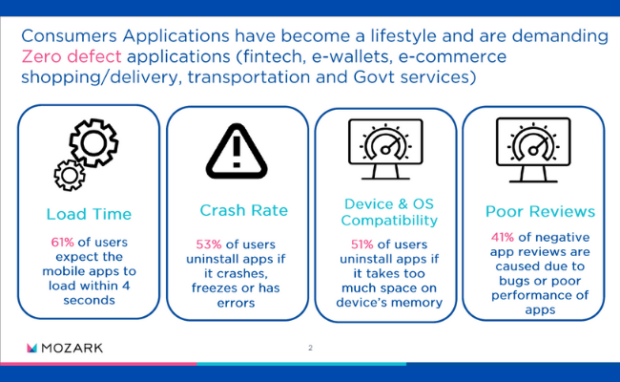Philippine Cybersecurity: How the country beats digital threats
The Philippines has been improving its cybersecurity measures as its digitalization efforts grow. Its Cybercrime Investigation Coordinating Center (CICC) has been spreading awareness regarding online scams so the public can defend themselves. The CICC has been deploying the latest tools, and the country has accepted more cybersecurity investments overseas.
The Congressional Policy and Budget Research Department (CPBRD) says digitalization could help the Philippine economy grow by ₱5 trillion or $97 billion by 2030. However, the CICC warns that online fraud in Metro Manila rose from 1,551 in 2022 to 4,446 in 2023, up to 186%. In response, the Philippines must bolster its cyber defenses.
This article will share some of the Pearl of the Orient’s latest cybersecurity measures. These include the CICC’s latest awareness drive, artificial intelligence tools, and the most recent company to bring cybersecurity investments.
The 3 most recent Philippine cybersecurity projects
- CitizenWatch Philippines
- Consumer Application Monitoring Systems (CAMS)
- NCC Group trains future cybersecurity pros
1. CitizenWatch Philippines

On July 28, 2023, CICC Executive Director Alexander K. Ramos and CitizenWatch Philippines Lead Convenor Orlando Oxales led the signing of a Memorandum of Agreement.
Ramos said the MOA will help CICC reach vulnerable consumers and empower them with cybersecurity training campaigns. “We would like to show to them that partnership with the government is the solution to resolving cybercrimes.”
Retired Supreme Court Justice Andres Reyes, a CICC highly technical consultant, said that consumer fraud would be one of the four major areas to be included in the proposed National Cyber Security Plan.
“It will be one of the first four policies at the top of the agenda of the cyber security plan of the Philippines because it affects not only the consumer but the poor consumer,” he said.
Oxales said internet access has become an indispensable utility for daily transactions and interactions with the digital transformation of the government and private sectors.
“CitizenWatch Philippines is one with the Cybercrime Investigation Coordinating Center’s (CICC) campaign to safeguard our digital environment. It is with honor and great enthusiasm that CitizenWatch Philippines is partnering with the CICC to fight the rising cybercrime incidents victimizing the country’s consumers,” he said.
2. Consumer Application Monitoring Systems (CAMS)

The CICC also deployed a new tool to ensure government service apps are safe against cyber threats. The agency calls it the Consumer Application Monitoring Systems or CAMS.
The institution based it on the Zero Defects principle American author and philosopher Philip Crosby introduced in his bestselling book, “Quality of Free.” ZD is the 9th principle, “Zero Defects Day,” which ensures companies leave an impact and everyone “gets the same message in the same way.”
The CPBRD says the Philippines is the fastest-growing digital economy among ASEAN member-states, with an extraordinary 93% year-on-year expansion from 2020 to 2021. However, the CICC says we must address the following Philippine cybersecurity issues:
- Load time: 61% of users expect the mobile apps to load within four seconds.
- Poor reviews: 41% of negative app reviews are due to bugs or poor performance of apps.
- Crash rate: 53% of users uninstall apps if they crash, freeze, or encounter errors.
- Device & OS compatibility: 51% of users uninstall apps if they occupy too much space on their device storage.
You may also like: PH cybercriminals are using popular chat apps
That is why the Department of Information and Communications Technology Secretary Ivan John Uy deployed the CAMS platform. Here are its features:
- AI-powered vision enables CAMS to “see” errors and automate event detection.
- Also, it uses robots for multi-stage user journey automation. It could follow the steps to accessing apps by tapping the correct sequence of buttons without human intervention.
- CAMS autonomous kits allow the platform to gather location-based data. As a result, it could highlight areas that may require further assistance.
“This will be a useful tool to identify the performance and the problem with government applications,” he said.
3. NCC Group trains future cybersecurity pros

We need local professionals who would continue improving Philippine cybersecurity. Fortunately, the global cybersecurity firm NCC Group inaugurated its first Manila office on January 17, 2024.
It is also the tech firm’s second Southeast Asian office. “Our people are the ones who make our purpose possible: a global community of talented individuals working together to create a more secure digital future,” stated CEO Mike Maddison.
“We are delighted to be expanding our global footprint with our new office in Manila. The city provides an impressive balance of highly educated tech and cyber capability, and we are excited to welcome our new colleagues over the coming months.”
“Our new office in Manila gives people a great opportunity to be part of something new from the beginning, but with the added benefit of being part of an established, global company,” Country Director Saira Acuna added.
You may also like: CICC protects the Philippines from cyber threats
“I hope that Filipinos will recognize this opportunity to be part of a burgeoning industry and see NCC Group as the place where they can start or develop their cybersecurity career.”
CEO Mike Maddison, COO Kevin Brown, and Country Director Saira Acuna hosted a press briefing after the inauguration. They explained their “people-centric” approach to addressing the cybersecurity needs of their clients and “demystifying” it to promote public awareness.
The NCC Group is also working with top PH universities to improve their curricula to create job-ready cybersecurity leaders.
Conclusion
The Philippines is facing more cybersecurity challenges as it boosts digitalization. Fortunately, the government is doing its best to fight online threats with the best tools and training programs.
The Congressional Policy and Budget Research Department said adopting the latest technologies is the “key to boosting the competitiveness and resilience of businesses in adapting to the evolving business environment.”
Realizing this potential will help the Pearl of the Orient shine brighter with its vision of a “matatag, maginhawa, at panatag na buhay para sa lahat” (a secure, comfortable, and peaceful life for all).
Learn more about Philippine cybersecurity
What is cybersecurity?
IBM defines cybersecurity as anything that “refers to any technology, measure, or practice for preventing cyberattacks or mitigating their impact. Cybersecurity protects individuals’ and organizations’ systems, applications, computing devices, sensitive data, and financial assets against simple and sophisticated computer viruses and similar risks.
What are the latest Philippine cybersecurity threats?
The most common online scams involve business or investment opportunities. They usually promise you’ll earn huge sums of money from interest. However, your “account” may not be accessible unless you allocate more funding. Other notorious examples include social media emails, fake websites, and bogus mobile apps.
How should we respond to cyber threats?
You may report suspected cybercrimes through the CICC main hotline at 1326. Also, you may reach the Inter-Agency Response Center (I-ARC) at 0966 9765971 (Globe), 09477147105 (Smart), and 09914814225 (DITO). You may send concerns to the CICC Facebook page, powered by its new CYRI chatbot.